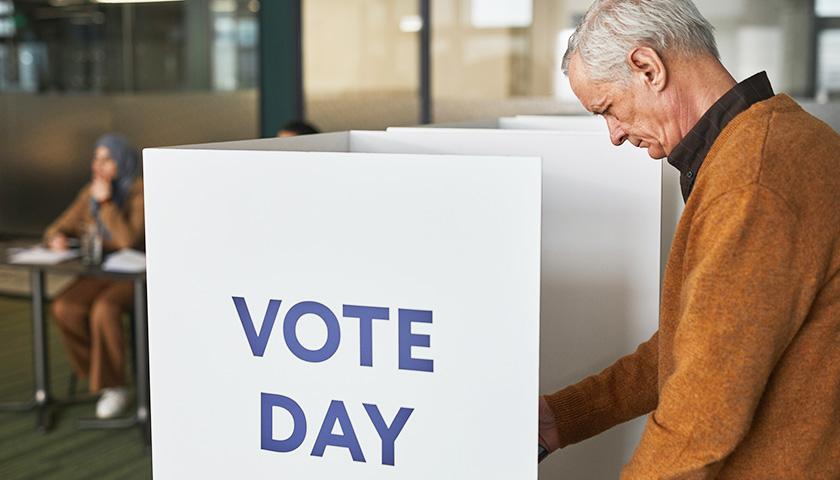by Jason Snead
It is less than 90 days to Election Day, and right on queue the group behind the “Zuck Bucks” campaign of 2020 is back with a new scheme. This time, the Center for Tech and Civic Life (CTCL) is doling out millions in grant dollars to rural election administrators in 19 states.
Election officers beware. The group is trying to turn the government offices that run elections into bastions of partisan progressive activism. Election officials striving for nonpartisanship should steer clear.

CTCL rose to prominence during the unprecedented election of 2020. The group got $350 million from Meta CEO Mark Zuckerberg, which it then funneled disproportionately to swing-state communities that ultimately voted for Joe Biden.
Racine, Wisconsin used its CTCL money to purchase a mobile voting van that in 2022 it deployed to heavily Democrat areas of the city to register voters and collect ballots. Earlier this year, a judge declared that illegal.
After 2020, a majority of states moved to ban or restrict private funding for running election offices, including several on a bipartisan basis. This year, Wisconsin voters approved two constitutional amendments to ban private funding after the scope of CTCL’s involvement was revealed. Even Mark Zuckerberg announced he would no longer back the group’s grants.
But that did not stop CTCL. Instead, it created “Zuck Bucks 2.0,” an $80 million program called the U.S. Alliance for Election Excellence.
Now, CTCL is offering grants to rural counties, saying it is merely helping cash-strapped offices on the eve of a contentious election. Sound familiar?
The sudden interest in flyover country is laughable. In 2020, rural areas got token grants of just $5,000 while urban areas got millions. CTCL claimed that big cities have more voters and therefore need more money. Subsequent analyses showed that blue counties got far money more per voter than red counties.
Perhaps CTCL hopes this move can insulate it against criticism that it is once again influencing elections. Not so fast. Reports indicate that CTCL is setting aside $2.5 million for rural grants.
CTCL is giving $3 million to Clark County, Nevada, for this election cycle alone. Add in the huge grants offered to heavily Democrat DeKalb County, Georgia and Madison, Wisconsin, and CTCL has given nearly three times the grants to just these heavily Democrat areas (located in swing states, no less) than hundreds of rural counties could get combined.
In fairness, CTCL is not wrong that rural areas often need additional resources. But those funds should come from state and local taxpayers, not partisan groups pushing an agenda.
And make no mistake, CTCL has a political agenda. Though it claims to be nonpartisan, it’s founder and executive director is a former Obama Foundation fellow and used to work at a group the Washington Post once labeled the “Democratic party’s Hogwarts for digital wizardry.” CTCL’s donors are just as left-wing, with major liberal organizations like the Skoll Foundation, Democracy Fund, and Arabella Advisors’ New Venture Fund footing its bills.
Small wonder, then, that by this April 28 states had banned or restricted CTCL-style private funding. Over the last few years, residents in communities from Greenwich, Connecticut, to Brunswick County, North Carolina, have opposed election administrators joining ranks with such a partisan group. Ottawa County, Michigan, declined to accept $1.5 million in CTCL funds with the county clerk explaining that accepting the grant could compromise public confidence in elections.
Over the next few months, CTCL will offer hundreds of rural counties “free” money. Many may feel inclined to take it. Before they do, they should know who they are doing business with.
Rural election offices may need additional funding, but turning to partisan groups like CTCL just puts public trust in elections at risk. County officials should treat CTCL’s latest offer of “free” money the way they would treat a windowless van hanging a sign marked “free candy:”
Stay away and warn your friends.
– – –
Jason Snead is the Executive Director of Honest Elections Project Action.
The views and opinions expressed in this commentary are those of the author and do not reflect the official position of the Daily Caller News Foundation.
Photo “Election” by Edmond Dantès.




